Note: There is now a newer Novel Coronavirus (2019-nCoV) Situation Report 22.
WHO Novel Coronavirus (2019-nCoV) Situation Report 21
- No new countries reported cases of 2019-nCoV in the past 24 hours.
- The WHO R&D Blueprint is a global strategy and preparedness plan that allows the rapid activation of R&D activities during epidemics. On February 11-12, WHO is convening a global research and innovation forum to mobilize international action and enable identification of key knowledge gaps and research priorities to contribute to the control of 2019-nCoV. The forum will include members of the scientific community, researchers from Member States’ public health agencies, regulatory experts, bioethicists with expertise in research in emergencies, and major funder of research related to 2019-nCoV.
Risk Assessment
China: Very High
Regional Level: High
Global Level: High
Coronavirus Situation in Numbers
Globally
- 40554 confirmed (3085 new)
China
- 40235 confirmed (3073 new)
- 6484 severe (296 new)
- 909 deaths (97 new)
Outside of China
- 319 confirmed (12 new)
- 24 countries (0 new)
- 1 death (0 new)
Countries, territories or areas with reported confirmed cases of 2019-nCoV, February 10, 2020
| Country/Territory/Area | Confirmed Cases |
|---|---|
| China | 40235 |
| International (Cruise Ship in Japan) | 70 |
| Singapore | 43 |
| Thailand | 32 |
| Republic of Korea | 27 |
| Japan | 26 |
| Malaysia | 18 |
| Australia | 15 |
| Germany | 14 |
| Vietnam | 14 |
| United States of America | 12 |
| France | 11 |
| Canada | 7 |
| United Arab Emirates | 7 |
| United Kingdom | 4 |
| India | 3 |
| Italy | 3 |
| Philippines | 3 |
| Russian Federation | 2 |
| Spain | 2 |
| Belgium | 1 |
| Cambodia | 1 |
| Finland | 1 |
| Nepal | 1 |
| Sri Lanka | 1 |
| Sweden | 1 |
| Total | 40554 |
Recommendations and Advice for the Public
During previous outbreaks due to other coronaviruses (Middle-East Respiratory Syndrome (MERS) and Severe Acute Respiratory Syndrome (SARS), human-to-human transmission occurred through droplets, contact, and fomites, suggesting that the transmission mode of the 2019-nCoV can be similar. The basic principles to reduce the general risk of transmission of acute respiratory infections include the following:
- Avoiding close contact with people suffering from acute respiratory infections.
- Frequent hand-washing, especially after direct contact with ill people or their environment.
- Avoiding unprotected contact with farm or wild animals.
- People with symptoms of acute respiratory infection should practice cough etiquette (maintain distance, cover coughs and sneezes with disposable tissues or clothing, and wash hands).
- Within healthcare facilities, enhance standard infection prevention and control practices in hospitals, especially in emergency departments.
WHO does not recommend any specific health measures for travelers. In case of symptoms suggestive of respiratory illness either during or after travel, travelers are encouraged to seek medical attention and share their travel history with their healthcare provider.

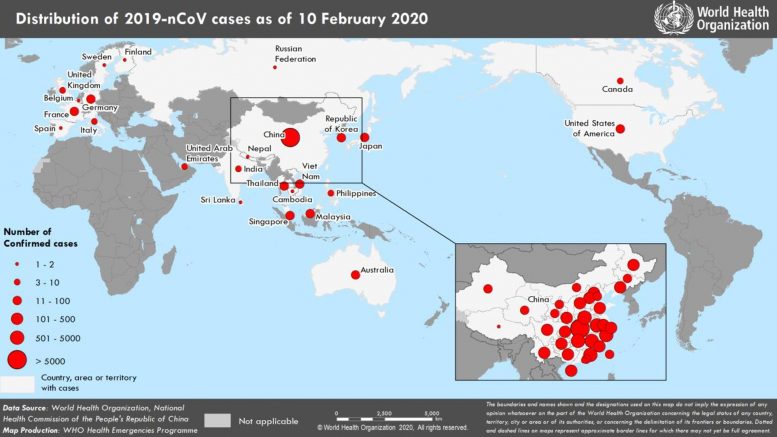
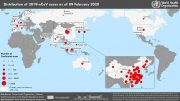
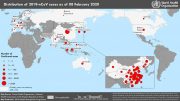
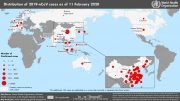
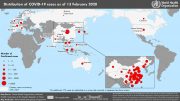
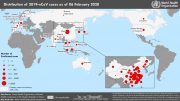
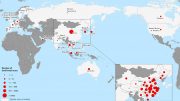
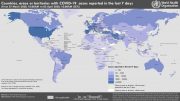
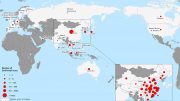
Be the first to comment on "97 Dead Overnight as Coronavirus Outbreak Tops 40,000 Confirmed Cases Worldwide"